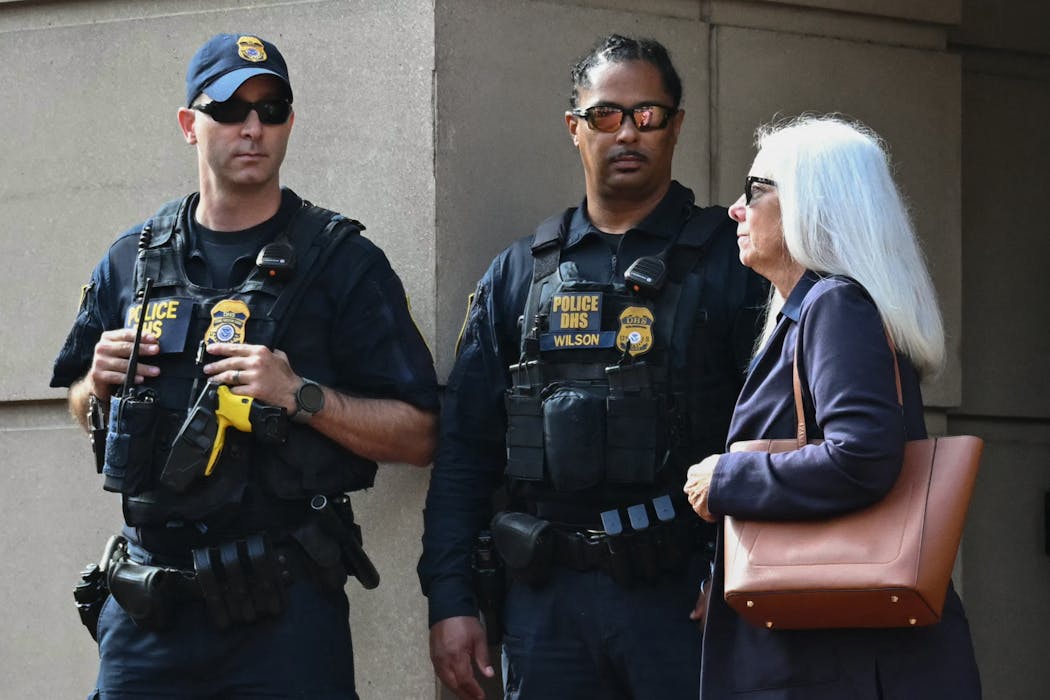James Comey’s lawyers face an uphill battle to prove selective or vindictive prosecution in his high-profile case
- Written by Peter A. Joy, Professor of law, Washington University in St. Louis

Soon after President Donald Trump demanded in a social media post that the Department of Justice prosecute his perceived enemy[1], former FBI director James Comey, Comey was indicted on Sept. 25, 2025[2], for lying to a Congressional committee in 2020.
Comey’s lawyers have responded, filing a motion on Oct. 20, 2025[3], to dismiss the charges against him with prejudice – the “prejudice” being legal jargon for barring a refiling of the charges. Comey’s lawyers allege that the Justice Department’s prosecution is both selective and vindictive.
Despite the existence of a long string of Trump attacks specifically urging that Comey be prosecuted, getting the case dismissed as a prosecution that is selective, vindictive or both[4] will require Comey to overcome a very strong presumption[5] that the charging decision was lawful.
Selective prosecution
For a court to find that there is a selective prosecution, Comey has two hurdles.
First, he has to demonstrate that he was singled out for prosecution[7] for something others have done without being prosecuted.
Second, Comey will have to prove that the government discriminated against him for his constitutionally protected speech[8] of criticizing Trump.
Clearing both of these hurdles seems unlikely. Others, including former Trump fixer Michael Cohen and former Reagan administration Defense Secretary Caspar Weinberger, have been prosecuted for the same type of crimes[9] – allegedly making false statements to Congress or unlawfully seeking to influence or obstruct a Senate investigation.
Vindictive prosecution
Due to Trump’s repeated[10] statements and social media posts that Comey should be charged[11], proving a vindictive prosecution may be easier.
Indeed, the motion to dismiss starts by laying out the argument for a vindictive prosecution, signaling that Comey’s lawyers think this is the stronger argument by leading with it.
Still, if Comey’s lawyers are to convince the judge, they will have to overcome a heavy burden that the prosecution has exceeded the broad discretion of the prosecutor.
The legal standard requires[12] a court to first find that the prosecutor had animus, hostility, toward Comey, and second, that the charges would not have been brought if there was no animus.
The motion to dismiss based on vindictive prosecution makes a very strong showing of animus, relying on Trump’s several statements and social media posts[13] that Comey should be prosecuted and that Comey was a “Dirty Cop” and “a total SLIMEBALL![14]”
Further evidence involves the fact that no other prosecutor[15] other than Trump’s former personal lawyer, Lindsey Halligan, would seek charges against Comey.
Still, the grand jury found probable cause for the two charges against Comey and issued the indictment. The government will likely argue that demonstrates that the charges could have been brought even if there was animus.
Fallback position
Comey’s lawyers are leaning heavily on arguments for a dismissal of the charges with prejudice, but they also have a fallback position.
If the judge determines that they have not proved a selective or vindictive prosecution, they are asking for the opportunity to obtain discovery – the record – of the government’s decision to seek charges from the grand jury, and a hearing on their motion to dismiss the indictment.
Given Trump’s public statements and social media posts, and the legal authority on this issue, as a longtime practitioner and teacher of criminal law[16], I believe the judge is very likely to choose this course of action.
No matter how the trial judge rules on the motion to dismiss, the losing side is certain to appeal. No matter how the federal appeals court rules, the losing side is likely to seek Supreme Court review. Whether the court would take such a case is impossible to predict with any certainty.
References
- ^ prosecute his perceived enemy (www.bbc.com)
- ^ indicted on Sept. 25, 2025 (abcnews.go.com)
- ^ filing a motion on Oct. 20, 2025 (storage.courtlistener.com)
- ^ selective, vindictive or both (www.scotusblog.com)
- ^ overcome a very strong presumption (supreme.justia.com)
- ^ AP Photo/Andrew Harnik (newsroom.ap.org)
- ^ singled out for prosecution (supreme.justia.com)
- ^ constitutionally protected speech (scholarship.law.upenn.edu)
- ^ prosecuted for the same type of crimes (www.nbcnews.com)
- ^ Due to Trump’s repeated (storage.courtlistener.com)
- ^ social media posts that Comey should be charged (www.nytimes.com)
- ^ legal standard requires (scholarship.law.edu)
- ^ Trump’s several statements and social media posts (www.nytimes.com)
- ^ Comey was a “Dirty Cop” and “a total SLIMEBALL! (www.bbc.com)
- ^ no other prosecutor (www.washingtonpost.com)
- ^ as a longtime practitioner and teacher of criminal law (theconversation.com)
Authors: Peter A. Joy, Professor of law, Washington University in St. Louis




